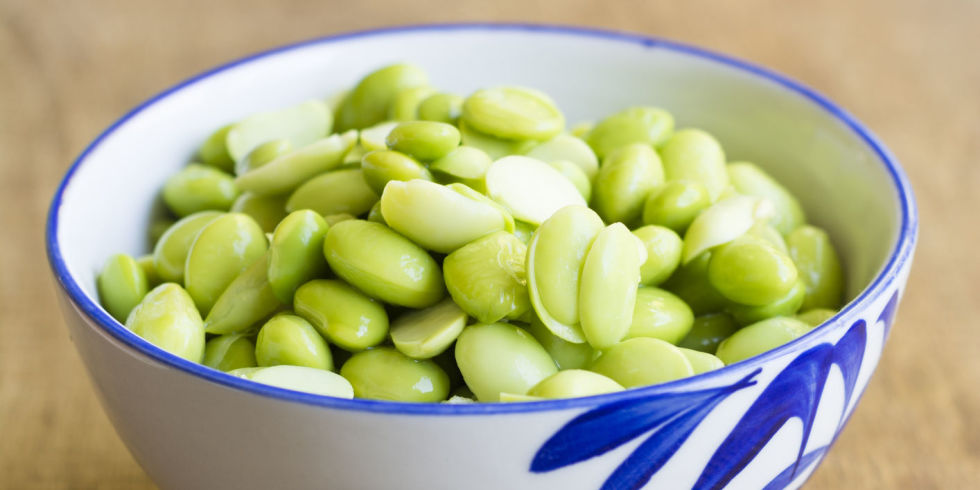First, the not-so-good news: No food is proven to prevent or cure any type of cancer, including breast cancer. Now the good news: There are many foods that can boost your overall health and in turn reduce your risk of developing breast cancer.
Being overweight is one of the main risk factors for breast cancer, so eating well and losing weight are excellent first steps toward lowering your breast cancer risk, says Alexandra Rothwell, RD, CDN, a specialist in oncology nutrition.
Inflammation is also linked with both breast cancer and being overweight, which is why Rothwell suggests eating foods that can help keep your blood sugar levels and inflammation in check. The following foods are pros at doing just that.
Olive Oil

On top of all the other health benefits already linked to olive oil, the healthy fat may also be useful in reducing breast cancer risk. A September 2015 study found that adding 4 tablespoons of extra-virgin olive oil to a diet rich in fruits and veggies could lower breast cancer risk by 68%.
And that’s not all: Olive oil may come with an additional benefit relating to breast density, which is another risk factor for breast cancer. A 2014 study of more than 3,500 women found that consuming an extra 1.5 tablespoons of olive oil each day was associated with lower breast density.
Fish

Salmon, sardines, and mackerel are all fish that Rothwell suggests adding to your diet because they are good sources of omega-3 fatty acids. “We know that omega-3s help decrease inflammation in the body,” she says. “You can also eat walnuts and seeds if you want a non-animal source.”
And just like olive oil, eating more omega-3s may also be linked to a reduction in breast density, according to a 2014 study in Cancer Causes & Control.
Fruits and Vegetables

All hail the power of the plant! Time and time again, studies have found that plant-based diets are associated with a lower risk of breast cancer. And there are a few possible reasons: The more antioxidants in a diet, the lower the breast cancer risk may be, according to a 2015 study. Also, the fiber found in fruits and vegetables may fuel their ability to diminish risk, as reported in a 2011 European Journal of Nutrition paper.
Rothwell recommends eating cruciferous vegetables (broccoli, cabbage, and cauliflower), allin vegetables (onions, leeks, and garlic), and Asian mushrooms (Shiitake, Chinese black, and oyster) in particular.
As for fruit, she says, “Stick to low-sugar varieties, like berries, and limit high-sugar fruit, such as bananas, pineapples, and mangoes, so that you can keep your blood sugar levels normal.”
Soy

You’re probably thinking: “But I thought soy was connected with increased breast cancer risk!” Before you call us crazy, let’s clear the air: Yes, soy has estrogen-like compounds, and estrogen has been linked to some cancers. But no, soy foods do not cause breast cancer. (Soy supplements may be less safe, but why would you consume your soy that way when you can chow down on roasted edamame?)
In fact, multiple studies have associated soy with a reduced risk of breast cancer. However, there is an exception: If you are a carrier of the BRCA2 mutation gene, soy may increase your risk, according to 2013 research published in the American Journal of Clinical Nutrition, which found that soy products lowered risk in breast cancer carriers – except those carrying the BRCA2 mutation.
Rothwell agrees that, in general, you can enjoy soy as part of a healthy diet without the fear that it will cause breast cancer. “Just make sure that you are eating whole, organic soy products like the beans, tofu, and tempeh, because you don’t know what processing can do,” she says.












